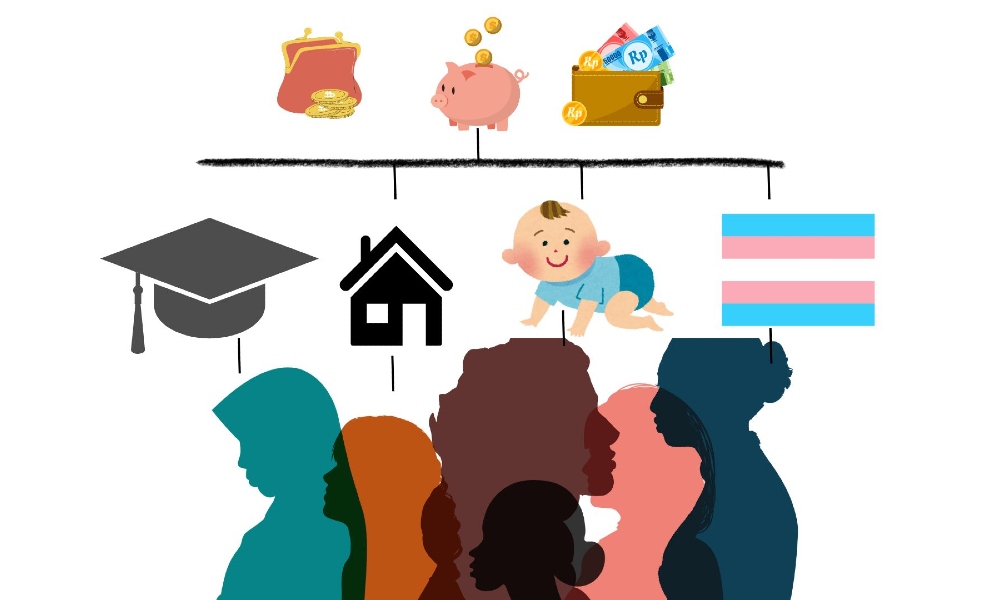Karnataka’s Chetana scheme benefits very few sex workers due to budget limitations and lack of awareness of social protection schemes. According to KWDC data, since 2021, 88,452 women have registered for the Chetana scheme, with only 5,228 of them receiving the scheme benefit.
In the dim confines of her room in Bapuji Nagar, Rupa (name changed) settles into a rickety chair, seeking solace in the sliver of sunlight. Amidst her morning chores, she briefly enjoys the warmth, while nearby, her four-year-old attempts to fix a broken toy. As a sex worker, Rupa does not have great expectations of what the future holds for her; all she wants is her child to go to school. Yet, hindered by lack of documentation and financial instability, the prospects appear bleak.The 30-year-old said she was forced into the flesh trade by her husband.
The Karnataka Women Development Corporation (KWDC) has only one scheme-Chetana, that was introduced in 2021 to help sex workers by giving an amount of Rs. 30,000 to start a small business in order to become self-sufficient. However, no awareness campaigns have been conducted by the KWDC. As a result, sex workers say that they continue to struggle without any help.
According to KWDC data, since 2021, 88,452 women have registered for the Chetana scheme, with only 5,228 of them receiving the amount.
In a neighboring cramped room, Shivani (name changed), a trans woman, carefully takes a cup of rice from a small aluminum drum, deliberating before returning two handfuls. While rinsing the rice, Shivani speaks of the challenges she faces. She said that she does not have a ration card, which would have provided her with essentials like 10 kg of rice and one liter of palm oil.
Shivani said, “We do not even get ration cards due to police verification requirements. An Aadhaar card could help, but most of us don’t even have one.” Like Rupa and Shivani, many sex workers in the state are excluded from and unaware of government welfare schemes that could improve their lives.
Officials say that because of shortage of funds, the scheme benefits few women. Deepthi Prakash, assistant general manager, KWDC, said, “Rs 2 crore are allocated to the scheme every year. However, due to fund shortages, we can only help a limited number of sex workers each year who are registered under the Karnataka State AIDS Prevention Society (KSAPS). To be able to help more beneficiaries, we need at least Rs. 8-10 crores.”
In the research paper “Boundaries of Contagion: The Unheard Plight of Sex Workers in Karnataka”, Devajana C. Nanjunda and Pulamaghatta N. Venugopal state that over three lakh women engage in sex work in Karnataka, and majority of them come from lower socioeconomic backgrounds. The report also states that 17-20 per cent of these women are HIV positive.
Representatives from KSAPS said that the budget for the Chetana scheme is limited, allowing only around 1,000 women from all 30 districts to benefit from the scheme every year.
C. Srinivas, assistant director, KSAPS (information and education department), said, “Every year, we send letters to the to the Karnataka government to sanction more funds for this scheme, but the government has not increased the budget until now.While many women register, we only prioritize those really in need, mainly women aged 40 to 50, who have stopped or have limited involvement in sex work.”
According to the research paper by Devajana C. and others, most number of sex workers is in Bangalore Urban. Despite that, KSAPS representative said that they provide more help to the women in rural areas.
C. Srinivas said that till 2022, KSAPS used to give Rs. 20,000 loan and Rs. 20,000 incentive under the Chetana Scheme. He said, “Now we give a one-time amount of Rs. 30,000, and most of the beneficiaries are from different taluks.”
This shows that there is no clarity on the websites regarding scheme benefits. The KSWDC site states that Rs. 30,000 will be given from 2021-22, while the Bangalore Rural website states that financial assistance of Rs. 50,000 (Rs. 25,000 loan and Rs. 25,000 incentive) will provided to the sex workers under Chetana. Officials, on the other hand, claim to have provided Rs. 40,000 (Rs. 20,000 loan and Rs. 20,000 incentive) until 2022.

“Sex work is defined as the provision of sexual services for monetary benefit or kind. A conservative estimate of the number of female sex workers in India is 1.2 million (UNGASS Country Progress Report 2010) with an estimated 6,88,751 “registered” female sex workers receiving services from the Ministry of Health and Family Welfare. Providing sexual services is the sole means of livelihood for them, and far from being a “non-essential” activity, sex work is their bread and butter,” EPW Engage reported.
Interestingly, according to the scheme, only those women who are “willing to give up their current profession and are willing to pursue income generation activities to lead a respectable and dignified life” are eligible for the scheme’s benefits.
Until 2022, KSWDC officials offered training to interested sex workers who were willing to set up small businesses. The five day program covered project report preparation, accounting, material management, and marketing. However, due to poor attendance, they discontinued the training.
Studies show that 57 per cent of sex workers in Karnataka are in sex work to take care of their children. These include widows, divorcees, deprived, orphans and those deserted by husbands. It states that in some cases, women have become sex workers to provide higher education to their children. Studies also show that more than 60 per cent of women earn Rs.1,000 to Rs. 5,000 per month.
Experts say that Rs. 30,000 is insufficient and the subsidy needs to be increased in order to effectively support sex workers. Spoorthi, coordinator at the Sangama NGO, said that due to the absence of a brothel system in Karnataka, many people hesitate to identify themselves as sex workers. She suggested increasing the amount from Rs 30,000 to at least Rs 1 lakh to promote alternative livelihoods for them.




